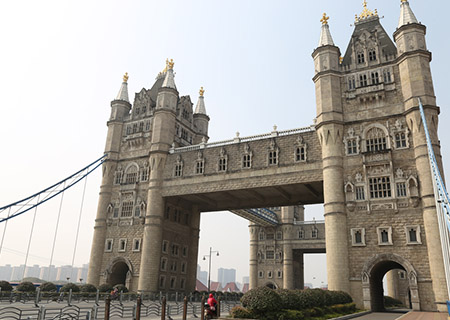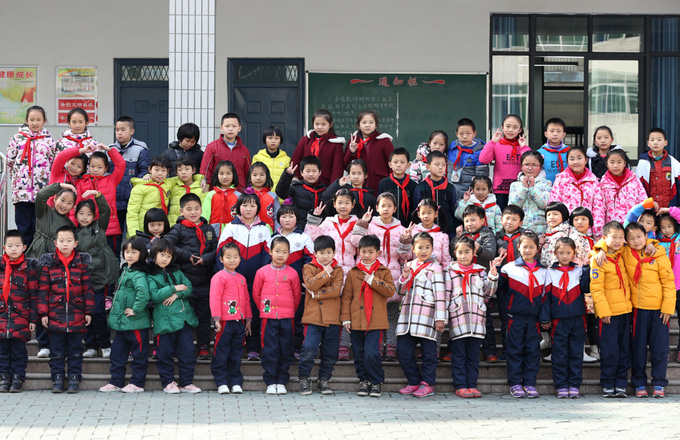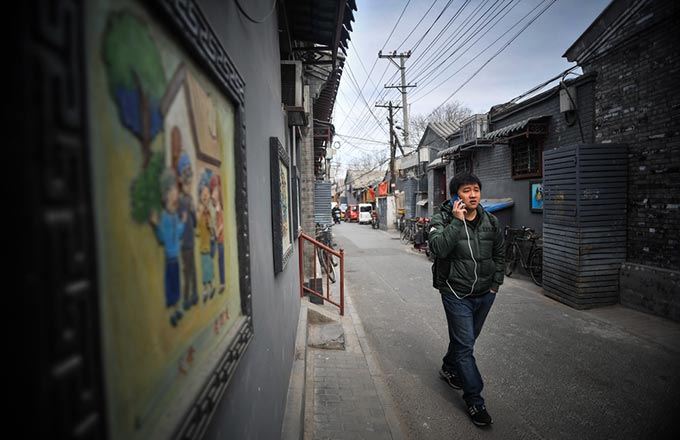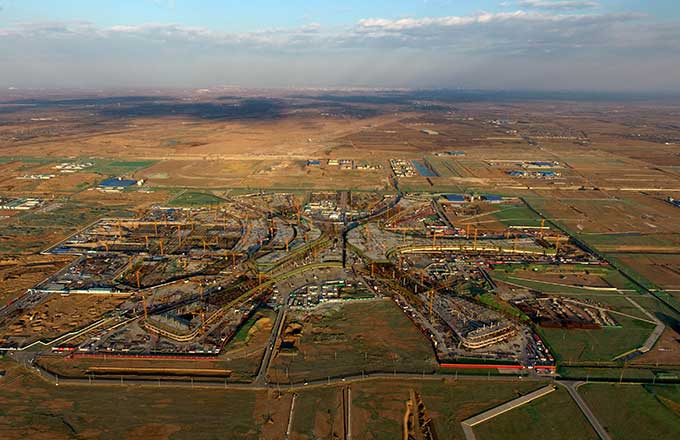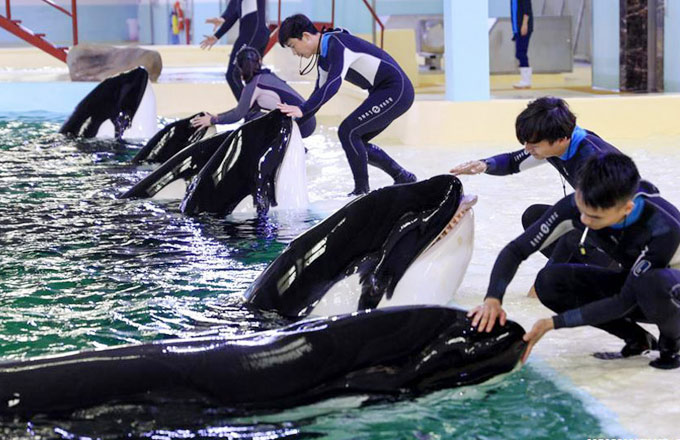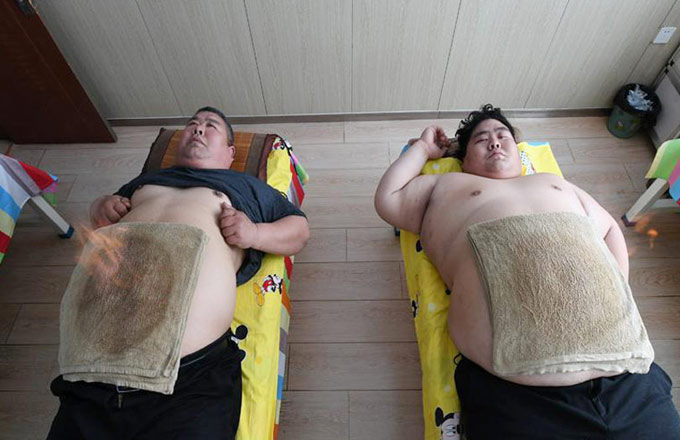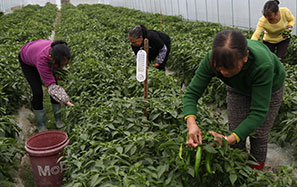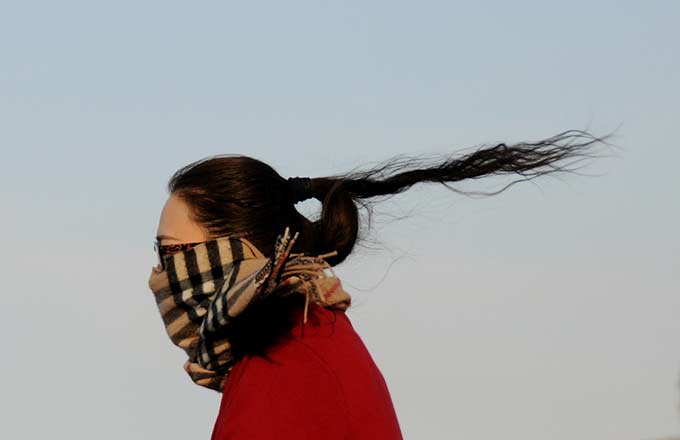China issues white paper on judicial reform of Chinese courts
II. Ensuring the Independent and Fair Exercise of Adjudicative Power by People's Courts by Law
China's Constitution provides that people's courts shall exercise their adjudicative power independently and free from any interference by any administrative organ, social organization or individual. The judicial power is a power of the Central Government. A local court in a place is not subject to the jurisdiction of the local government in that place, but is a judicial organ set up by the State in that place to exercise the adjudicative power on behalf of the State. Since 2014, in conjunction with the related departments under the Central Government, the Supreme People's Court has been advancing the reform of the judicial management system, exploring ways to improve the organizational system of courts, establishing the record system for interferences with cases, improving the system for safeguarding the authority of judicature, and promoting the creation of an institutional and social environment trusting, respecting and supporting judicature.
Promoting centralized management of personnel, financial and material resources of local courts below provincial level. The reform of the judicial management system by promoting centralized management of personnel, financial and material resources of local courts below the provincial level reflects that the judicial power is a power of the Central Government in nature. All the regions have advanced the work of centralized management in an open, transparent and democratic manner relying on the provincial platforms. The size and composition of local courts below provincial level in a provincial-level region are subject to management by the provincial commission department with the assistance of the higher people's court in that region. The commission departments at municipal or county level are no longer responsible for the management of size and composition of courts within their respective jurisdictions. Each provincial-level region has established the mechanism that the judges of local courts below provincial level are subject to nomination, management, appointment and removal according to the legal procedures by the provincial-level government in a centralized manner. Judge assistants are recruited and employed by provincial-level public server management departments in conjunction with higher people's courts in a centralized manner. Junior judges are subject to professional qualification examination by provincial-level judge selection committees, and nomination, appointment and removal according to the legal procedures by provincial-level governments in a centralized manner. The provincial-level regions have also explored the reform of centralized funding management system for local courts below provincial level in light of their respective local conditions. In some provinces, autonomous regions and municipalities directly under the Central Government, the funds required by local courts below provincial level are fully included in the budgets of the Central Government and of the provincial-level governments; the provincial-level financial departments manage the funds required by local courts below provincial level; all the courts at the provincial, municipal and county levels are classified as first-level budgetary units and prepare and submit their respective budgets to the provincial-level financial departments; their budgetary funds are appropriated from the central payment system of the Treasury.
The Supreme People's Court sets up circuit courts. In January 2015, the Supreme People's Court set up No. 1 Circuit Court in Shenzhen, Guangdong, whose circuit covers Guangdong, Guangxi and Hainan, and No. 2 Circuit Court in Shenyang Liaoning, whose circuit covers Liaoning, Jilin and Heilongjiang. These Circuit Courts are responsible for adjudicating major administrative cases and trans-regional civil and commercial cases. As the standing local judicial organs dispatched by the Supreme People's Court, the judgments, rulings and decisions made by these Circuit Courts have the equal effect as those made by the Supreme People's Court. As of December 31, 2016, No. 1 and No. 2 Circuit Courts of the Supreme People's Court had accepted 4,622 cases, concluded 4,534 cases and received 73,000 visitors in total, and have become the "experimental units" and "pacesetters" of the judicial reform conducted by the Supreme People's Court, and realized the original intention to delegate the adjudicative power, facilitate initiation of lawsuits by the people, settle disputes locally and safeguard the unification of legal system. On December 28-29, 2016, upon the approval by the Central Government, four additional circuit courts set up by the Supreme People's Court were officially opened in east, central, southwest and northwest China respectively. The No. 3 Circuit Court was established in Nanjing, Jiangsu, whose circuit covers Jiangsu, Shanghai, Zhejiang, Fujian and Jiangxi. The No. 4 Circuit Court was established in Zhengzhou, Henan, whose circuit covers Henan, Shanxi, Hubei and Anhui. The No. 5 Circuit Court was established in Chongqing, whose circuit covers Chongqing, Sichuan, Guizhou, Yunan and Tibet. The No. 6 Circuit Court was established in Xi'an, Shaanxi, whose circuit covers Shaanxi, Gansu, Qinghai, Ningxia and Xinjiang. Hunan was added into the circuit of the No. 1 Circuit Court, while the circuit of the No. 2 Circuit Court remains unchanged. The head office of the Supreme People's Court directly accepts cases from Beijing, Tianjin, Hebei, Shandong and Inner Mongolia, thereby realizing a reasonable layout of circuit courts.
Setting up trans-regional people's courts. In order to ensure lawful and fair adjudication of trans-regional cases, with the approval by the Standing Committee of the National People's Congress, the Beijing No. 4 Intermediate People's Court and the Shanghai No. 3 Intermediate People's Court were established in Beijing and Shanghai respectively in December 2014. As pilot trans-regional people's courts, these two courts are responsible for adjudicating major civil, commercial, administrative, environmental and resource protection, food and drug safety and certain criminal cases involving different administrative regions, to ensure fair adjudication of cases involving local interests. As of December 31, 2016, the Beijing No. 4 Intermediate People's Court had accepted 5,686 cases and concluded 5,380 cases, while the Shanghai No. 3 Intermediate People's Court had accepted 3,325 cases and concluded 3,119 cases. The Supreme People's Court will, according to the overall arrangement by the Central Government, and on the basis of seriously analyzing the experience of the two pilot trans-regional people's courts in Beijing and Shanghai, explore and establish a new pattern of litigation system in which general cases are adjudicated at local courts and special cases are adjudicated at trans-regional courts.
Setting up IP courts. In order to further enhancing judicial protection of intellectual property rights (IP) and unifying the adjudicative criteria for IP cases, with the approval by the Standing Committee of the National People's Congress, IP courts were established in Beijing, Shanghai and Guangzhou on November 6, December 16 and December 28, 2014 respectively. The Supreme People's Court promulgated the relevant judicial interpretations, defining the jurisdiction of IP courts over cases, and providing guidelines on the appointment of IP judges, participation in litigious activities by technological investigation officers of IP courts and other issues. The IP courts have built a new image of China in judicial protection of IP through fair adjudication of typical cases, timely publication of typical cases, news conferences and otherwise.
Reforming the organizational system of military courts. Military courts are judicial organs set up by the State in the army. According to the overall arrangement by the Central Government, the basis for the setup of military courts was changed from branches of services and systems into combat zones. After the said reform, the new organizational system of military courts includes the PLA Military Court (at the level of higher court), the Military Court of the East Combat Zone of the PLA, the Military Court of the South Combat Zone of the PLA, the Military Court of the North Combat Zone of the PLA, the No. 1 and No. 2 Military Courts of the West Combat Zone of the PLA, the Military Court of the Central Combat Zone of the PLA and the Military Court Directly under the Headquarters of the PLA (at the level of intermediate court), and 26 military courts of the PLA in Shanghai, Nanjing, and Hangzhou and other cities (at the level of primary court).
Promoting trans-regional centralized jurisdiction over administrative cases. Considering that an administrative case is subject to jurisdiction of the court in the place where the administrative organ as the defendant is located and may be subject to interference by local administrative organs, according to the overall arrangement by the Central Government, the courts in all regions have been exploring the establishment of a system of jurisdiction over administrative cases relatively separate from administrative divisions, through escalation of the jurisdiction to the higher level, cross-jurisdiction among different regions, relatively centralized jurisdiction and otherwise, carrying out reforms of the jurisdiction system with different characteristics, to practically solve serious problems in administrative lawsuits, such as difficulty in case filing, difficulty in trial and difficulty in enforcement. In June 2015, the Supreme People's Court promulgated the opinions on trans-regional centralized jurisdiction over administrative cases, instructing certain higher people's courts to, according to their respective local conditions, designate some courts to exercise jurisdiction over trans-regional administrative cases, so as to integrate resources of administrative adjudication and improve the judicial environment for administrative adjudication. The higher people's courts in Fujian, Shandong, Henan, Guangdong and other regions assigned the jurisdiction over certain administrative cases of first instance to some designated primary or intermediate people's courts other than the courts originally having the jurisdiction over such cases, so as to eliminate the public's concern that officials shield each other, through fairly adjudicating all kinds of administrative cases as per law.
Improving the system for safeguarding the authority of judicature. The Supreme People's Court, in conjunction with the Standing Committee of the National People's Congress, amended certain charges under the Criminal Law, to further safeguard the authority of judicature. The Ninth Amendment to the Criminal Law of the People's Republic of China adopted on August 29, 2015 further defined the offences of refusal to execute judgments or rulings, added an offence under the Criminal Law and inserted the provisions regarding offences committed by entities; amended the offences of interference with court order by defining the acts of beating up the parties to lawsuits, or insulting, defaming or threatening the judicial personnel or parties to lawsuits, or refusing to obey the court's order to stop such acts or otherwise seriously interfering with court order as offences; and added the offences of false charges by defining the acts of bringing any civil lawsuit on the ground of fabricated facts, disturbing the judicial order or otherwise seriously damaging the legitimate rights and interests of others as offences. On June 20, 2016, the Supreme People's Court promulgated the guidelines on preventing and punishing the persons lodging false charges, instructing the courts in all regions to identify the elements of false charges, and enhance the examination of and punishment against false charges, to safeguard the credibility and order of lawsuits.
Strengthening the system requiring principals of administrative organs to appear in the court to respond to charges as per law. In July 2016, the Supreme People's Court issued a notice requiring the people's courts in all regions to further regulate and promote response to administrative lawsuits pursuant to the relevant provisions of the Administrative Procedure Law of the People's Republic of China, and providing that if the principal or related staff members of an administrative organ do not appear in the court personally and just appoint an attorney to appear in the court, or if the principal of an administrative organ fails to appear in the court at the written request of the people's court, the people's court shall record the fact in the case file and state it in the judgment, and may issue public notices thereon according to law, and suggest that the appointing authority, supervisory authority or the administrative organ at the higher level should impose serious punishments on the responsible persons. In Jiangsu, the rate of appearance of principals of administrative organs in the court to respond to charges has remained above 90% for two consecutive years, in particular, the rate of their appearance in the court has been above 90% in Nantong and other eight prefecture-level cities, and reached 100% in Kunshan and other 58 counties (cities and districts); while in Hai'an County, the three consecutive heads of the County have appeared in the court to respond to charges and the rate of appearance of principals of administrative organs in the court to respond to charges has remained 100% for six consecutive years.
Establishing the system of recording and circulating notices of criticism on officials' interference with judicial activities and handling of specific cases. The General Affairs Office of the CCCPC and the State Council jointly promulgated the regulations on recording, circulating notices of criticism on and investigating and affixing the responsibility for officials' interference with judicial activities and handling of specific cases. The Supreme People's Court formulated the measures for the implementation of such regulations, which provide that each people's court, at whatever level, shall establish a database of interference with cases by outsiders in its case information management system; the staff members of people's courts shall record in a complete, truthful and timely manner the correspondences, letters and oral opinions relating to any specific cases passed on by any external organizations or individuals outside the legal proceedings; each people's court shall summarize and analyze the information in its database of interference with cases by outsiders involving interference by officials on a quarterly basis, prepare a special report thereon and submit the same to the departments concerned and the people's court at the higher level; any staff member of a people's court who fails to record such information or to record such information truthfully or any official in charge who incites any staff member not to record such information or not to record such information truthfully shall be subject to disciplinary actions depending on the actual circumstances.
Improving the mechanism for protecting judicial personnel in performing their statutory duties by law. The Supreme People's Court, in conjunction with the departments concerned, formulated the regulations on protecting judicial personnel in performing their statutory duties by operation of law and the measures for implementing such regulations, which expressly provide that no administrative organ, social organization or individual may interfere with the adjudication of cases by judges as per law; no entity or individual may request any judge to do anything beyond the scope of his/her statutory duties; except for legal causes or according to legal procedures, no judge may be transferred to a different post, removed from office, dismissed, demoted or discharged or subject to any other punishment; any person who interferes with or obstructs any judicial activity, threatens, disturbs, takes revenge on, frames up, insults, defames or commits violence towards any judicial person or any close relative thereof shall be subject to serious punishment immediately according to law; and any person who insults or defames any judge by submitting any false report, lodging false accusations or fabricating false charges through the information network or otherwise shall be held liable under the law, so as to create a favorable institutional environment for judges to perform their duties.


